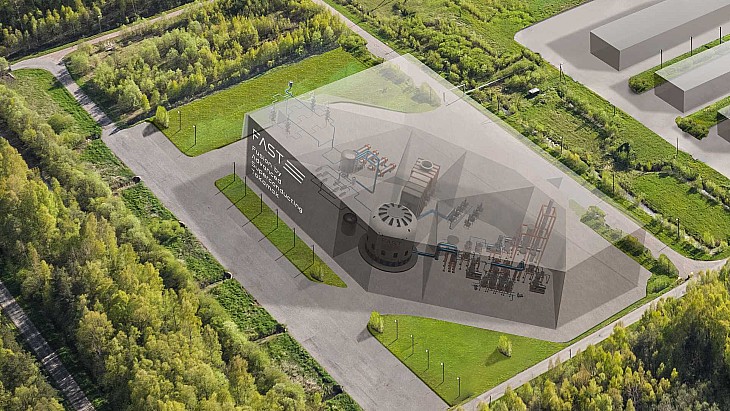The US Department of Energy's (DOE) Waste Isolation Pilot Plant (WIPP) yesterday received its first shipment of transuranic waste since reopening after almost three years out of action.
 |
| WIPP shared a video of the shipment's arrival (Image: WIPP) |
The shipment from Idaho marked an important milestone for the New Mexico facility, which was out of operation from February 2014 until January of this year following two unrelated underground incidents. Until now, host communities have had to store TRU waste, which consists of clothing, tools, rags, residues, debris, soil and other items contaminated with small amounts of plutonium and other man-made radioactive elements.
WIPP is the USA's only repository for the disposal of TRU wastes from the country's military program. Operations at the facility, where sealed drums of waste are placed in underground rooms mined out of an ancient salt formation, were suspended in February 2014 following an underground truck fire and the rupture of a waste drum in separate incidents.
The DOE commissioned two investigations into the incidents and in October 2014 embarked on a stepwise recovery plan estimated to cost $242 million up to the restart of operations. Additional costs included new permanent ventilation, about another $65 million to $261 million, and a new exhaust shaft, at between $12 million and $48 million. Waste emplacement operations restarted in January 2017 with waste that had been stored at an on-site facility.
Two shipments per week will now arrive at the facility, ramping up to four per week by the end of this year. Initial shipments are expected from Idaho, Savannah River and Waste Control Specialists, whose Texas facility has been used for the temporary storage of TRU waste from the Los Alamos National Laboratory (LANL) since 2014. Shipments from Oak Ridge and LANL are expected later in the year.
The DOE estimates that by the end of next January WIPP will have received 61 shipments from Idaho; 24 from Oak Ridge; 24 from LANL; eight from Savannah River and 11 from Waste Control Specialists. The exact allocation and sequence for shipping will be adjusted depending on the emplacement rate at WIPP, operational needs at WIPP and generator sites, and logistical issues that may affect shipping. Generator sites are responsible for verifying that their TRU waste meets requirements for safe transportation and disposal.
Todd Shrader, manager of DOE's Carlsbad field office, said: "To see shipments arriving again at WIPIP is celebrated not only by the WIPP workforce and the Carlsbad community, but also by our DOE host communities that support the critical missions of the Department."
Jack Zimmerman, deputy manager for the Idaho Cleanup Project at the DOE's Idaho Operations Office, said "I speak for all of us when I say that we are pleased to be shipping to WIPP again."
Researched and written
by World Nuclear News




_82983.jpg)
_34792.jpg)
_16403_79272.jpg)


_76087_55556.jpg)



